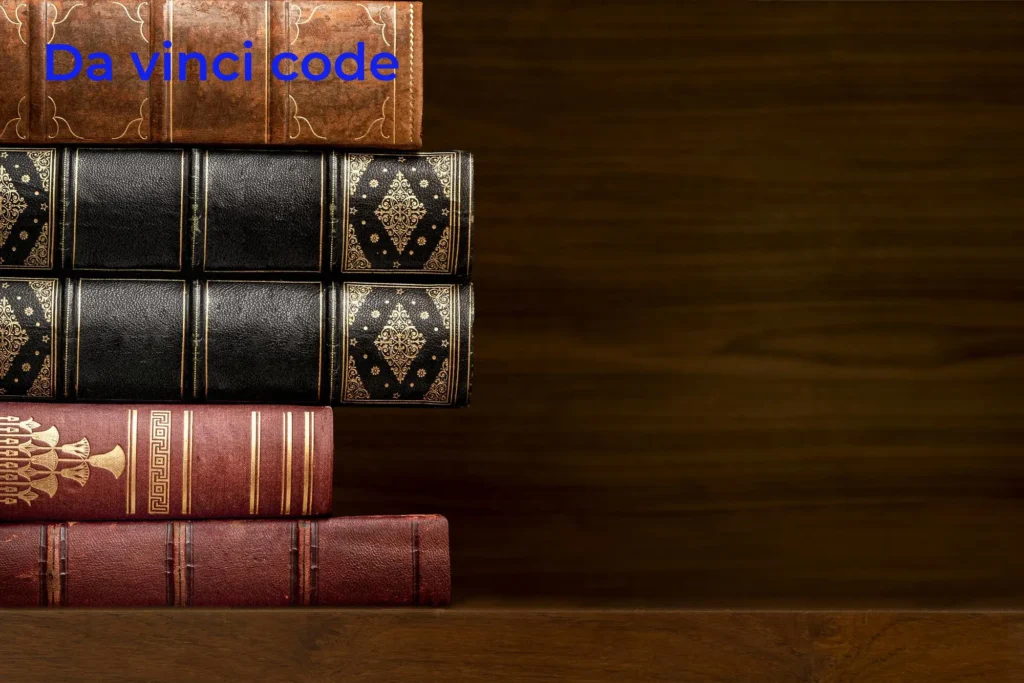Review of the Da Vinci Code book
Updated: 15 February 24
6
Introduction
Have you ever stumbled upon a book that blurs the lines between fact and fiction, challenging everything you thought you knew about history and religion? “The Da Vinci Code” by Dan Brown is precisely that kind of literary phenomenon. This riveting novel, ideal for lovers of thrillers and historical conspiracies, takes readers on a breathless journey through Europe’s most revered museums and churches, inviting them to decode one of the most intriguing puzzles of our time.
Dan Brown masterfully intertwines history, art, codes, and symbols in a narrative that questions the foundations of Christianity, making this book a must-read for anyone with a penchant for suspense and mysteries.
Author’s Background
Dan Brown, an author known for weaving intricate plots filled with codes, secrets, and enigmatic societies, catapulted to international fame with the publication of “The Da Vinci Code.” Brown’s background in art history and his keen interest in the interplay between religion and science provide a solid foundation for the novel’s complex narrative.
Before this masterpiece, Brown had already made a name for himself with “Angels & Demons,” introducing the world to Robert Langdon, the Harvard symbologist who would become one of literature’s most beloved characters. Brown’s meticulous research and compelling storytelling have earned him a place among the best-selling authors of the 21st century.
Main Content of the Review
Summary
“The Da Vinci Code” begins with a shocking murder in the Louvre Museum, leading Robert Langdon into a labyrinthine quest alongside cryptologist Sophie Neveu. The duo uncovers clues hidden in the works of Leonardo Da Vinci, revealing a centuries-old secret society and a historical conspiracy that could shake the foundations of Christianity.
As Langdon and Neveu race against time and an elusive enemy, they unravel a mystery that challenges the very history of the Western world.

Critical Analysis
Brown’s narrative is a masterclass in pacing and suspense, keeping readers on the edge of their seats from start to finish. While “The Da Vinci Code” shines with its intricate plot and fascinating historical references, critics have pointed out inaccuracies and over-simplifications in Brown’s depiction of historical and religious facts.
Nevertheless, the novel’s strength lies in its ability to provoke thought and debate about history, religion, and the role of secret societies in shaping our world. Compared to other works in the thriller genre, Brown’s novel stands out for its intellectual depth and the seamless way it integrates real art history and religious concepts into a fictional narrative.
Personal Reflection
Reading “The Da Vinci Code” was an exhilarating experience that compelled me to question and research the historical and religious references Brown so vividly describes. The novel’s blend of fact and fiction not only entertained but also educated, providing a fresh perspective on familiar subjects.
The book’s controversy and the discussions it sparked only added to its allure, making it a memorable read that continues to fascinate years after its publication.
Recommendation
“The Da Vinci Code” is highly recommended for readers who love puzzles, mysteries, and thrillers, especially those with an interest in history and religion. Its fast-paced narrative and intellectual challenges make it a perfect pick for anyone looking for a story that entertains, educates, and provokes thought.
Conclusion
“The Da Vinci Code” by Dan Brown is more than just a novel; it’s an intellectual adventure that challenges readers to look beyond the surface of history and religion. Its blend of factual and fictional elements, combined with Brown’s skillful storytelling, makes it a standout in the thriller genre. Whether you’re a skeptic or a believer, this book promises to engage your mind and spark your curiosity.
FAQs
What makes “The Da Vinci Code” controversial?
The novel’s speculation on historical and religious themes, particularly its portrayal of Christian history and the role of Mary Magdalene, has sparked debate and controversy among scholars and religious groups.
Is “The Da Vinci Code” based on real history?
While the novel incorporates real historical figures, artworks, and some factual organizations, its narrative is largely fictional, blending historical elements with speculative theories.
Can “The Da Vinci Code” be read as a standalone novel?
Yes, “The Da Vinci Code” can be enjoyed as a standalone novel, though it is part of Dan Brown’s Robert Langdon series, which explores similar themes across different books.
Who would enjoy reading “The Da Vinci Code”?
Readers interested in thrillers with historical, religious, and cryptic elements will find “The Da Vinci Code” particularly captivating.
Has “The Da Vinci Code” won any awards?
While “The Da Vinci Code” has not won major literary awards, its success lies in its bestseller status, widespread popularity, and the significant impact it has had on popular culture, including a successful film adaptation.
Author Bio of the Reviewer
As a member of the My Review Book (MRB) team, I bring a passion for literature and a keen interest in historical and religious mysteries to my reviews. With a background in literary studies and years of experience in book analysis, I aim to provide insightful and engaging reviews that help readers navigate the vast world of books. Our mission at MRB is to offer honest, thoughtful, and detailed reviews, guiding you toward your next great read.
Please Write Your Comments